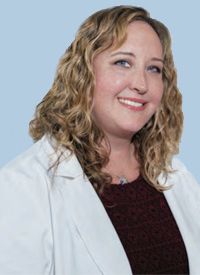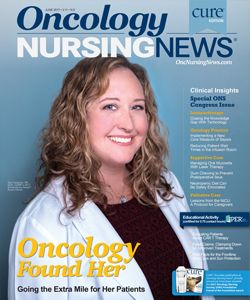Oncology Found Her: Going the Extra Mile for Patients With Head and Neck Cancer
Sara Sargente found her calling at age 13, caring for her grandfather who had cancer. This oncology nurse navigator and winner of CURE® magazine's 2017 Extraordinary Healer® Award has never looked back.
Sara Sargente, RN, OCN

Sara Sargente, RN, OCN
For Sara Sargente, RN, OCN, it was the middle of the night when she heard her calling to be an oncology nurse. From a young age, she had known she would be a nurse as she watched her grandmother leave for work in her starched white uniform and cap. But it was another moment that clarified oncology nursing as her calling.
Sargente was only 13 when her grandfather was sent home on hospice for his final days after being diagnosed with colon cancer. She and her mother, an EMT, were caring for him, answering the tiny bell they had given him to ring for care.
“I was sleeping downstairs one night, when I heard the bell,” she recalled. “My mom didn’t wake, so I went to help him by myself.” Sargente had no fear that night, she said, nor was she afraid when he died a few days later. Instead, she experienced a comfortable feeling as the family played his favorite songs and he closed his eyes for the last time.
While caring for him that night, Sargente said she knew that her career in nursing would be as an oncology nurse, a vision she did not relinquish, even when everyone in nursing school told her she would have to do a few years of other, more basic care before going on to oncology. Indeed, her first job was as a floor nurse in a general surgery unit. After only a few months, however, she applied for an oncology position at another hospital across town. It was a longer drive, but she knew it was where she belonged.
Sargente worked in radiation for a few years, when a mentor tapped her to apply for a position as a nurse navigator for patients with head and neck cancer at the Orange Regional Medical Center, in Middletown, New York. “They go through so much with this cancer,” she explained. “It is so very difficult, and their quality of life is affected. They can’t go out to eat with their family and enjoy the simplest things that we take for granted.”
Often, she goes to see patients at home, relieving them of the lengthy drive many of them must take to get to treatment. She facilitates a support group through the organization Support for People with Oral, Head and Neck Cancer, and she became certified in blood management to respond to the needs of Jehovah’s Witness community members who do not allow the use of any blood products during surgery. This year, she is beginning her second term as president of her local ONS chapter, which she helped found to provide a closer group for area nurses.
“We have a core group of nurses here who are so loving and compassionate. They are not worried about themselves but keep asking what we can do for the patients,” she said. Sara oversaw a fundraiser that brought in $10,000 the first year the chapter was in operation. The group established a fund called Acts of Kindness, and any patient could apply. Last year they raised $15,000.
“Instead of giving it to nurses, we all decided we wanted to support the patients with $100 gift cards for gas or prescriptions or whatever they needed,” said Sargente. “For example, one woman who had a mastectomy needed a button-up-the-front shirt. We have patients who are so poor, they cannot buy their medicine.”
Sargente is supported not only by the hospital but also by her family, her husband, and 4 children. The third-generation healer in her family, she is watching the fourth generation prepare that role as her daughter trains to be a radiation therapist—in oncology, of course.



